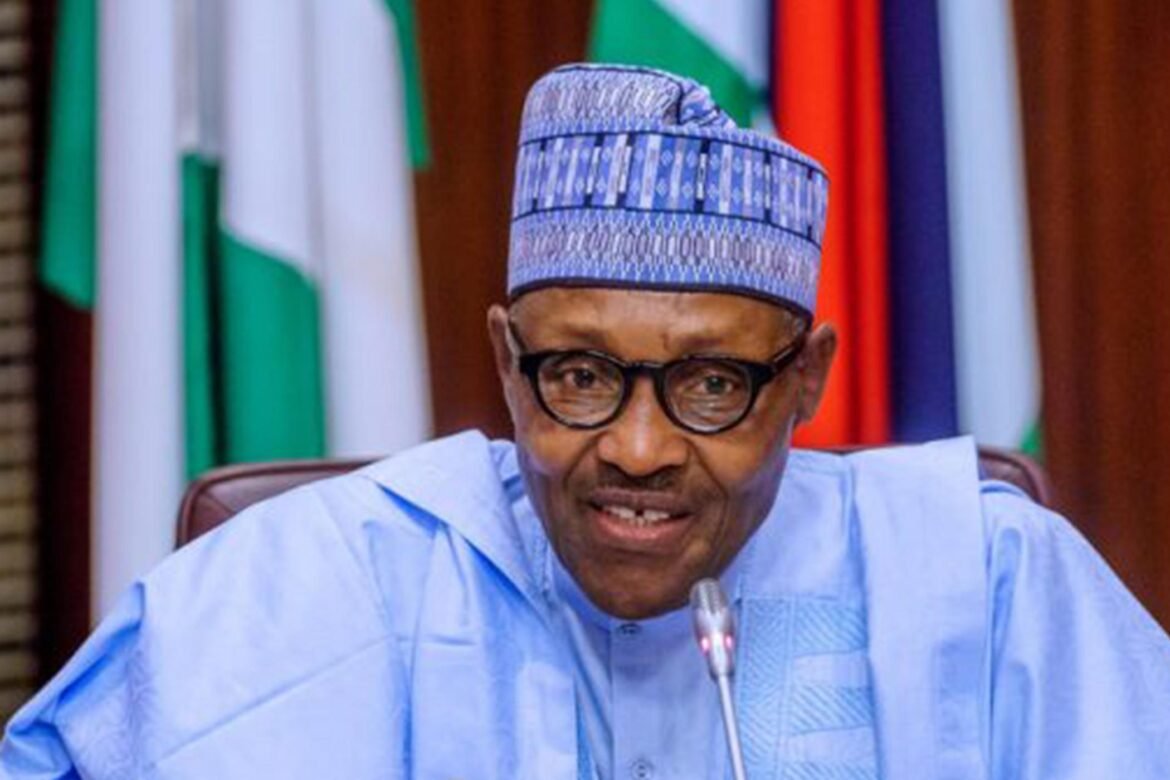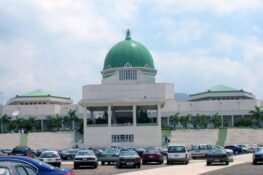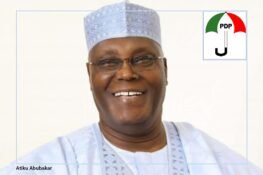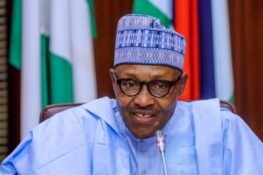In the twilight of his stay in the highest office of the land, President Muhammadu Buhari has been unable to mask his complete misunderstanding of his role as the president and the expectations of the majority of Nigerian voters put him in Aso Rock.
Only a month to the end of his eight-year tenure, the President fails to grasp the state of the nation – a Nigeria that is in a shambles, anation further impoverished, heavily indebted, more divided and more inclined to fail than succeed.
The cluelessness was confirmed by General Buhari when he told Nigerians he has received answers from God for everything he hoped to achieve.
Speaking while receiving guests in Abuja during the Ramadan celebration, he stated: “I’ve got all I asked of God, I can’t wait to go home.”
The statement raised a big question about what exactly General Buhari’s vision was for contesting the presidency five times.
Did the former military head of state, who tried three times before eventually succeeding in his return as a civilian president, ask God to give him the kind of system he’s leaving behind?
If indeed he asked for a Nigeria in its present condition, he reveals himself an unfortunate incident in an important time in the life of the nation. He’s been a disaster!
Since Muhammadu Buhari was elected President in 2015, the country has only experienced regrettable missteps, challenges and failures. From insecurity to economic decline, human rights violations, corruption, infrastructure deficit, and political division, Nigerian has not fared well
No one in his right mind could have asked for today’s Nigeria, where things are so bad, many citizens, from young to the very old, are fleeing, in the process of emigration popular tagged “japa.”
Buhari campaigned on a platform of change, promising to tackle corruption, insecurity, and economy challenges.
Captivated Nigerians, tired of one-party rule under the People’s Democratic Party, gave the mantle to him in a historic election that saw the opposition party take power for the first time since Nigeria’s independence.
Since Muhammadu Buhari was elected President in 2015, the country has only experienced regrettable missteps, challenges and failures. From insecurity to economic decline, human rights violations, corruption, infrastructure deficit, and political division, Nigerian has not fared well.
How could God have given Buhari all in his eight years in office when many Nigerians believe they made a mistake by electing a president who has set Nigeria back many years through ineptitude and nepotism.
Many vocal advocates of his administration have since gone underground.
There is no denying the fact that the country has witnessed a significant increase in terrorism, banditry, kidnapping, and other violent crimes under Buhari’s watch.
Insecurity is perhaps the most significant challenge inherited from the Jonathan administration, but it was not too difficult to resolve under a Buhari’s presidency. Instead of using his experience as a military leader, he turned the nation into a roaming field for lawless persons, from herdsmen to bandits.
While families mourned the loss of loved ones through forceful occupation by gun-wielding Fulani herders, kidnapping became a thriving business across the nation. Rail services were suspended between Abuja and Kaduna for months after bandits attacked a train and kidnapped passengers, demanding N100 million per head for the victims.
Worshippers were gunned down in cold blood during a church service in Owo, Ondo State, while thousands of other “lucky” citizens have had to pay billions of naira in ransom to kidnappers who roamed while Buhari could only pick his teeth.
Criminal activities have led to the displacement of thousands of people and have also affected agricultural production, leading to food shortages and rising food prices.
Nigeria’s economy has struggled under Buhari’s rule – with inflationary rates exploding, unemployment rising to historic levels and the currency weakening to its lowest levels ever.
Despite stated goals to diversify the economy away from oil, the country remains heavily dependent on oil exports, which make up over 90% of Nigeria’s foreign exchange earnings, excluding diaspora remittances.
We could admit that the fall in oil prices in 2015, the subsequent recession that followed and the Covid-19 pandemic exposed the vulnerability of the Nigerian economy, but the Buhari administration has handled the foreign exchange market poorly.
The government introduced capital controls, which restricted access to foreign exchange and led to a shortage of dollars. The shortage resulted in a parallel market where the exchange rate is much higher than the official rate, making it difficult for businesses to operate.
The naira has been so unbelievably weakened that the purchasing power of Nigerians declined in hundreds of percentage points. The exchange rate has reached as high as N800 to a dollar, from under N150.
The result has been hyperinflation, standing at around 22%, low productivity and lower standard of living for the majority of Nigerians. The unemployment rate has hovered around 40% for two years.
Corruption remains a significant problem, despite Buhari’s anti-corruption campaign. There have been allegations of corrupt practices in government institutions, among political leaders and even among the President’s close circle in the award of government contracts and the management of public funds. Corruption is a malignant cancer that undermines Nigeria’s development efforts and erodes public confidence in government institutions.
The nation remains under the jackboots of kleptomaniacs and Buhari has had no answer to it, other than to scratch the surface.
There may have been some high-profile arrests and recoveries of stolen funds, but these efforts are not nearly enough to tackle the scale of corruption in the country. For a president who was expected to dramatically enforce probity and transparency, this was a huge failure.
While one can point at some roads, bridges, rail lines and airport improvements, the failure of Buhari’s government to adequately address Nigeria’s infrastructure deficit is also a fiasco.
Nigeria has a poor road network, inadequate power supply, low-quality public schools and poor healthcare facilities, which have not been adequately addressed under Buhari’s administration. Economic growth has been stunted because businesses find it difficult to operate efficiently under poor and declining infrastructure.
Buhari’s administration has sold Nigeria to the Chinese and other international debtors in its attempt to build public infrastructure and find funding for other projects. While modest progress has been made in the transportation system, it has been too little to make a dent.
With Nigeria facing regular power outages, including more frequent collapses of the national grid, several initiatives to improve power supply have simply failed.
Human rights violations have also worsened under Buhari’s leadership. There have been reports of excessive use of force by security forces, harassment of journalists and dissenting voices, and restrictions on freedom of speech and assembly.
One can point to the use of security forces to suppress peaceful protests, as was witnessed in the Lekki Toll Gate shooting in October 2020 during the #EndSARS protests, as an example of an administration that acts with a military rule mindset.
As he departs, the nation has been more fractured along ethnic and religious lines than before he came to power
There have also been reports of extrajudicial killings by security forces, particularly in the fight against Boko Haram. In addition, the government has been criticized for its use of the Cybercrime Act to target critics of the government, including journalists and bloggers.
Political division as well as ethnic and religious tensions have also intensified under Buhari’s leadership. With over 250 ethnic groups and a significant population of Muslims and Christians, the administration’s handling of the country’s diversity has been with a tone-deaf style, with many accusing Buhari himself of enforcing ethnic policies that benefit his own kinsmen.
In the height of the herdsmen-farmers crisis across the nation, instead of responding with fairness, President Buhari dared to introduce Ruga settlements and a colonial era law that opened space all over Nigeria for the herdsmen to roam.
It led to a growing sense of disenfranchisement among some sections of the population which also fueled political tensions.
As he departs, the nation has been more fractured along ethnic and religious lines than before he came to power.
Historians may record disintegration as Buhari’s greatest failure.
So, President Mohammadu Buhari is leaving a nation much more divided, significantly poorer, indebted, insecure and hanging by a thread.
How could he say God has answered all his prayers with the nation being in this bad state?
God may have answered Buhari’s prayers, but Nigerians are still looking up to God to answer their own prayers.








